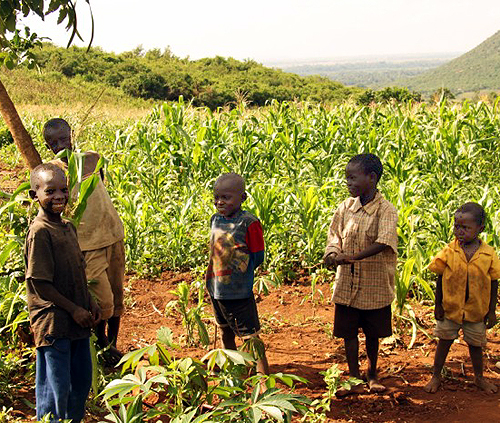 Kenya will end all restrictions on genetically modified agricultural seed, setting the stage for the largest production of GMO crops in Africa.
Kenya will end all restrictions on genetically modified agricultural seed, setting the stage for the largest production of GMO crops in Africa.
According to the country’s vice president, William Ruto, the end of the partial ban on a variety of GMO seed will “maximise agricultural production, improve health services, conserve the environment, and basically improve the living standards of our people.”
The back-and-forth suspensions of GMO seeds throughout sub-Saharan Africa this decade reached a turning point two years ago when Monsanto agreed to unlimited free use of its Monsanto 810 by sub-Saharan African countries, currently being distributed by the Bill Gates Foundation.
The drought resistant corn embodies the entire debate over GMO. While there is no doubt higher yields in stressed environments are produced when Mon810 is used, both bug and virus diseases seem to develop rapidly and powerfully against it.
As a result farmers using the seed also must use more pesticide.
The debate is whether this is because the GMO maize itself somehow nurtures super disease, whether it is simply more susceptible because it’s a relatively new genetic strain, or even whether it’s simply climate change.
The third possibility remains plausible because statistics gathering in Africa remains poor. While there are reasonable statistics to prove that additional pesticides are required for the use of GMO crops, there are not good numbers on what climate change is doing to traditional crops.
No matter the cause, new and tougher ways to suppress bugs and viruses is required whenever a farmer begins using Mon810.
South Africa has discovered that planting every fifth or sixth row of corn with non-GMO crops considerably reduces the need for added pesticide on the entire field.
But that’s an expensive proposition, especially for Kenya.
The net financial payoff, however, remains positive in both South Africa and Kenya. The question is what is the payoff to the overall environment and this question is a much longer term consideration than growing enough food next year for the local population.
I’m no scientist, and I remain very skeptical about altering genes for agriculture or medicine. But in the absence of any similarly efficient alternative for food production, it seems terribly crass to argue against the use of GMO in Africa.